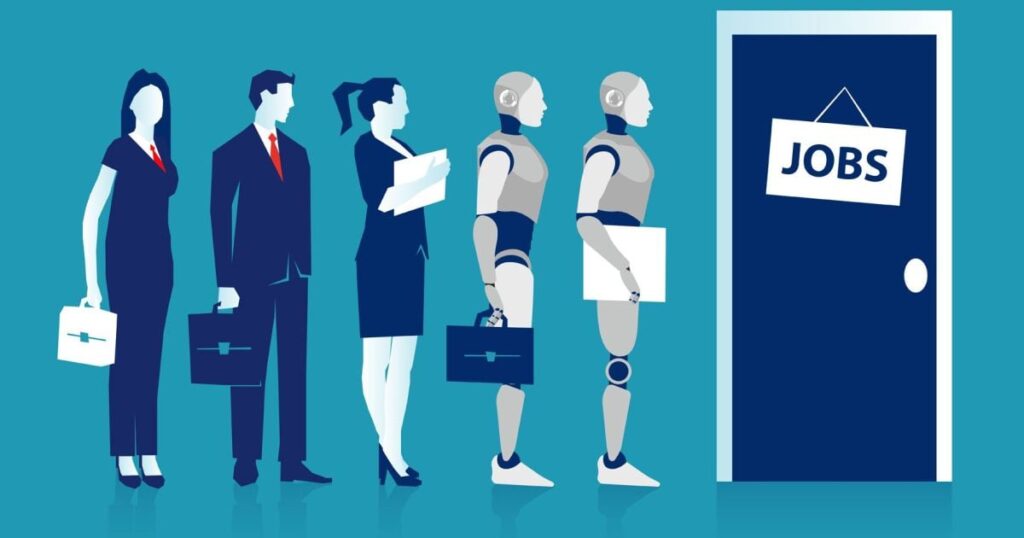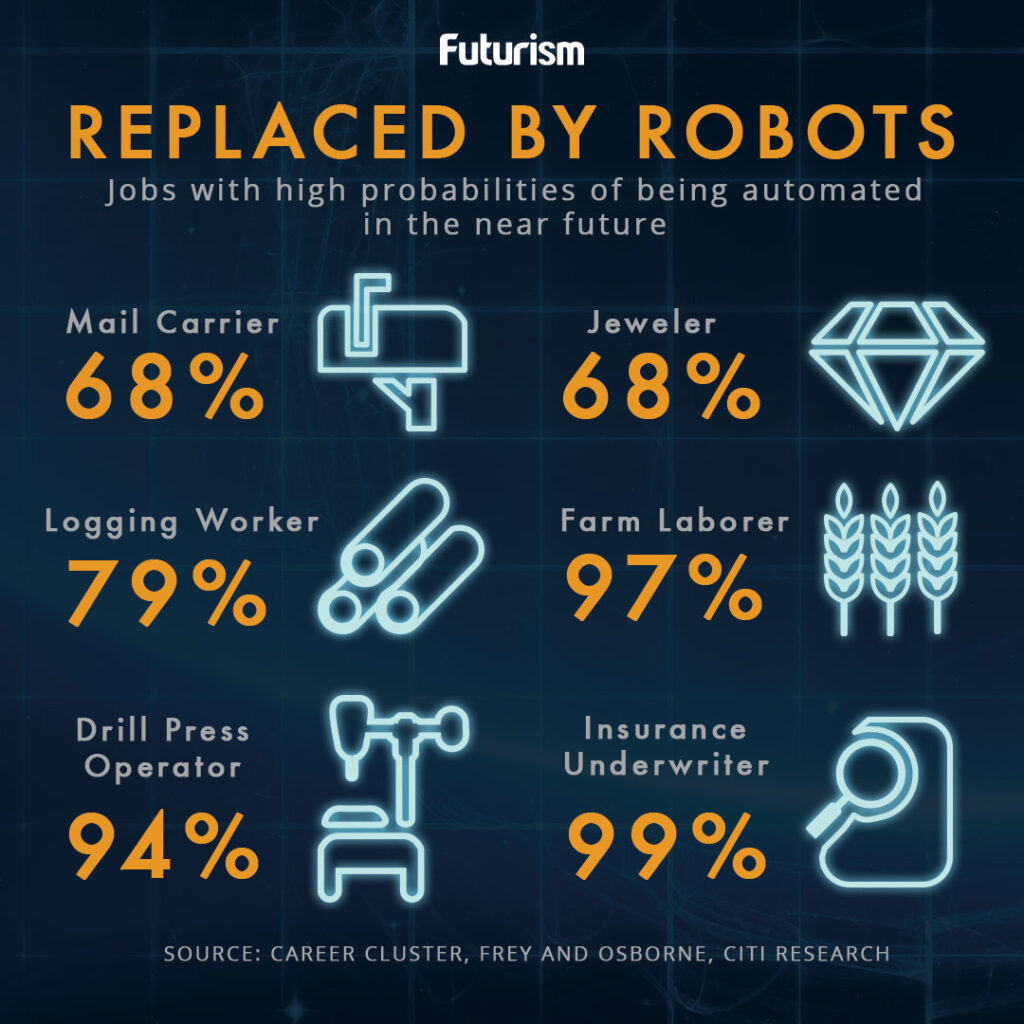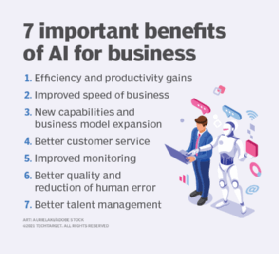I decided to make my blog post this week about the emergence of artificial intelligence (AI), how it is currently impacting our society, and how it will affect our future.
AI is a relatively new concept, which had previously only been discussed and portrayed in science fiction. When I used to think of AI, I would picture the generic “terminator-style” robot that seemed human, but wasn’t actually. Given this, it was customary for me, or anyone else, to be skeptical about how safe AI can be and worry about our future with it. “Won’t these machines cause more harm than good for us?” was what I routinely thought to myself. However, after conducting some research on the matter, I came to the conclusion that not only is AI a great benefit to mankind, but an inevitable one. According to one article by McKinsey & Company, “…AI has the potential to deliver additional global economic activity of around $13 trillion by 2030, or about 16 percent higher cumulative GDP compared with today” (McKinsey). This economic impact is massive, and it supports the idea of a better functioning economy with the help of AI. The recent boom in technological developments had previously acted as a sort of “crutch” for humans. For example, the creation and global distribution of the modern smartphone allowed humans to connect, discover, and learn much more at a faster rate than ever before. However, this still needed a considerable amount of time and effort by humans to do so. In the future, AI will transform this ratio of work required, allowing humans to do more for less.
Another article I read, which was written by Life Architect, dives deeper into examples of the economical advantages of using AI in business applications. They discuss how AI can create text-to-image models, which can have various uses. In a matter of seconds, an AI program is able to convert text to a high-quality and completely unique image using only a few keywords. Using this, it was stated that “The monetization of these text-to-image models has been faster than expected. Mattel—a $6 billion per year toy company—is applying image generation models to their toy concepts” (Life Architect). This is incredible to see a company so large utilizing AI to push new products and formulate new creative ideas that will decide the future of their company. In class, we discussed the “curve” that many new technological advancements make in society. Dr. Kane described how many newcomings follow the same path, in which they rise in popularity quickly and then fall just as fast. Eventually, they start to plateau and become mainstream to the public, and I believe AI will do the same. Many businesses will start utilizing AI in their day-to-day work, only after the rush of it’s endless possibilities starts to decline. Eventually, the use of AI will take over our lives, bringing more opportunities for humans to strive in other fields.
Another article I found, written by Mike Thomas, discusses the future of AI and a few examples of where it can improve many lines of work. A few of these include transportation, manufacturing, healthcare, education, media, and customer service. The one that really interests me is the manufacturing aspect. He states that jobs like assembly, stacking, and predictive analysis can be assigned to AI in order to run more efficiently (Mike Thomas). I believe that adjusting these job positions to AI programs will have a huge benefit for mankind. In class, we had Anh Phillips discuss the evolution of technology, along with how much the world will be changing because of it. She stated that tech isn’t just a way to survive these days, but it is a way to set yourself apart in the world. This statement resonated a lot with me, and it further proves my point that using AI proficiently will do more good than harm. At first it may seem like we are losing jobs for humans to give up to AI. However, moving these types of labor-oriented jobs to machines will allow humans to focus on creating and inventing, and it will force us to use our minds more than just our physical bodies. One MIS professor described this transition to me very well. He stated that by utilizing machines such as AI, we aren’t eliminating job positions for humans, but instead, we are transitioning roles towards heavy-thinking instead of heavy-lifting. In the end, this transition will prove to be more beneficial to mankind than previously expected.
Finally, I wanted to discuss the possible worries that emerging AI technology could bring. Many people believe that by having AI take over many of these jobs, humans will inevitably become dumber and less efficient at these tasks. An article written by Bernard Marr states, “Another issue is ensuring that AI doesn’t become so proficient at doing the job it was designed to do that it crosses over ethical or legal boundaries. While the original intent and goal of the AI is to benefit humanity, if it chooses to go about achieving the desired goal in a destructive (yet efficient way) it would negatively impact society” (Bernard Marr). This quote immediately reminds me of the blockbuster film Avengers: Age of Ultron. The main antagonist, Ultron, believes that the solution to fixing humanity is through evolution. He plans on erradicating all human life with the purpose of having the strongest survive to continue the human race in a better way. While this is purely fiction, it does spark the idea of AI taking over without being able to understand morals and ethics like humans can. Despite all of this, I am still confident that AI will do what we need it to, since we are the ones programming it and limiting its potential. The amount of positive impacts AI can have on our society widely outweighs the negatives. In fact, I would go as far as saying that the negatives that many people fear are actually faulty and will not end up having anywhere close to the negative impact that many believe it would.
After all of this, I am excited to see where AI technology goes, along with seeing how much it impacts our society. There are countless possibilities that AI can achieve, and there is so much weight it can take off our shoulders. I want to end this post with a quote I heard that sums up how AI will transform our society. It talks about how instead of figuring out the answers to our previously known questions, we will instead start to focus on what questions to ask in the first place. Our brains are so inefficient compared to the technology we are creating, but with these new creations, we will be able to learn and achieve much more than we ever thought we could.



